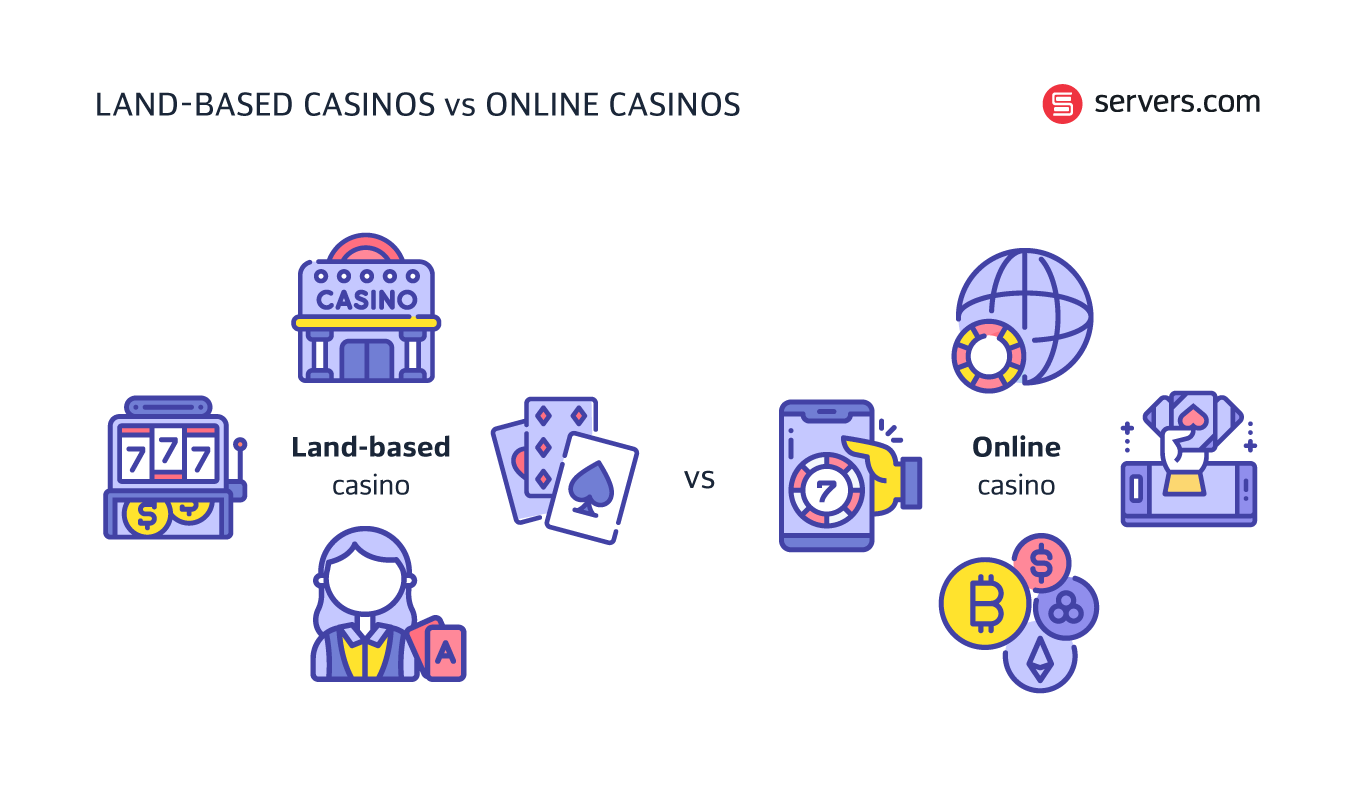

Gambling has been a popular pastime for centuries – and now in the internet age, placing a wager is easier than ever. iGaming offers a range of options for people to enjoy betting and gambling, without the need to visit a physical location. In fact, many established physical casinos have started making their games accessible online to engage with today’s digital-first audiences.
So, with the world of gambling entering the digital age, what are the differences between land-based casinos vs online casinos? And how do hosting requirements differ with gambling going online? Let’s explore.
Anyone who enjoys gambling today will have considered the pros and cons of land-based casinos vs online casinos at some point or other. For those that choose land-based casinos, it’s usually because physical casinos have a particular atmosphere. The lights, the patrons, and the sounds of people winning big are all part of the experience for many casino goers.
An online casino is completely virtual – all the games take place online. This means that online casinos are accessible to a global customer base.
For operators, the accessibility of online casino gaming is hugely important. Traditionally, gamblers had to travel to a land-based casino, creating a potential barrier to participation. And because of gambling laws, land-based casinos are sometimes located in remote locations, making them too far away for ‘drop-in’ traffic.
Key differences between land-based and online casinos include game variety and player experience. Online casinos typically offer more games, are available 24/7, and can be played from anywhere. Land-based casinos are less accessible, but for some players nothing beats the ‘real life’ casino atmosphere.

In theory an online gambling system can serve an unlimited number of people and host an unlimited number of games. But in reality, virtual venues are limited by the server resources that run the games.
For online gambling to be functional and accessible, operators need sufficient server infrastructure to support player numbers. Operators must also consider the resource impact of other back-end operations – such as maintaining a user database – as this can impact the performance of an iGaming server.
Although most of the operations are virtual, online casinos will still need to follow many of the same processes as their physical counterparts. Both types of casinos are driven by data – relying on the information they collect to identify and reward their most valuable customers and to detect and prevent fraud.
But in the online world, virtual casino operators are better equipped to understand how gamblers interact with their games. Online casino operators can use those insights to improve the user experience, plan for future expansion, and maximize earning potential.
It’s also worth noting that many online casinos are working hard to replicate the atmosphere and excitement of a live gaming floor. For example, one iGaming trend that’s really taken off is live dealer games. This is where online casinos live stream games like roulette, blackjack, and poker from physical game rooms (often located within a land-based casino) so that players can tune in remotely and place their bets.
iGaming hosting that provides a consistent, exceptional player experience is complex. You need to ensure that online casinos always perform optimally, without lagging or crashing – otherwise players will lose trust and move to another online casino gaming provider. A solid online gambling system is the backbone of all excellent online casino experiences.
One way to improve performance is to ensure the data center hosting your online casino is geographically close to your players. This helps to reduce latency - the time taken for data to travel between the casino and your players.
To better understand the effects of latency, it helps to have an example:
Imagine you’re playing online slots. You place a bet and hit the spin button and you wait for the reels to stop spinning. You expect to see the result of the spin immediately – but instead the reels are still going so you don’t know if you’ve won or lost. This delay is caused by latency – the server hosting the game is probably located too far away from the player, increasing the time it takes for the game to function as it should.
Understandably, latency is really frustrating for online casino customers. High latency damages customer trust and often results in customers leaving for other sites that perform better.

Frances is proficient in taking complex information and turning it into engaging, digestible content that readers can enjoy. Whether it's a detailed report or a point-of-view piece, she loves using language to inform, entertain and provide value to readers.